For many years the Water Services Corporation have been investing in the water delivery infrastructure in Malta and I think its fair to say that we have all seen huge improvements even though "can you drink the tap water in Malta" is a very popular search.
Today, 20th March 2025 Water Services Corporation have launched the latest phase of the tap water revolution in Malta and I will break down how this affects residents in Malta and what it all means.
Exactly what is the tap water revolution in Malta
So this phrase is the tag line of an educational drive by WSC to inform Malta consumers about the upgrade and changes to the public supply of tap water in Malta.
The subheading to the initiative is Affordable, Accessible, Tastier - well chosen words to illustrate the huge benefits of drinking tap water in Malta instead of those plastic bottles.
I understand the concept behind this initiative is to provide a central source of truth with accurate information backed by data, science and experience from a reliable, well informed source about tap water in Malta.
From my perspective at TAPP Water Malta I think this is a positive step and very much welcomed to help move forward the number of households that rely on drinking water from the tap in Malta and eliminate the need for bottled water entirely.
The campaign is built on some solid pillars: which are found at Why Tap water
- Malta public water supply is high quality, meeting all EU standards
- A 30% reduction in chlorides has improved the taste
- A single quality zone delivers consistency across the islands
- If consumers want to filter their water then activated carbon filters will enhance your experience and they are easy and affordable to find
- A 60% grant up to a maximum of €100 is available - launching on 26th March. Details to follow.
The water filters recommended by Water Services Corporation
WSC provide information on the range of options available for activated carbon filters in a simple table citing the alternatives as:
- Undersink filters
- Countertop filters
- Filter jugs
- Faucet mounted filters
Do Water Services Corporation suggest to use reverse osmosis filtration at home in Malta
Interestingly, I noted that a specific question in the FAQs addresses the question of reverse osmosis and Water Service Corporation has the following answer which is worth repeating in its entirety as it is very clear:
A simple charcoal filter is all you need to enjoy great-tasting tap water at home. WSC has already done the heavy lifting with their advanced RO treatment plants, making home RO systems unnecessary. Additionally, home RO systems are more expensive to purchase and waste up to 70% of water during the filtration process, making them both costly and environmentally inefficient.
WSC
Why is the tap water revolution in Malta needed?
Any Facebook group posting about water quality in Malta will give you a good idea about the strength of feeling about the subject and I have read most of the posts on social media over a number of years and in my view the general consensus is very divided and consists of the following factions.
- Its not possible to drink it, you will suffer great harm
- You can drink, I have been drinking it for years and never had a problem
- You can drink it, but it tastes awful
- You can only drink after boiling
- Only use bottled water to drink and cook and give to your pets
- Rely on bottled water from the supermarket, its free!
- Only use filtered water, reverse osmosis is the only way to go
- I use XXX water filters and its great
Quite often many of the opinions also reference some of the classic myths thrown around by many people to support their position and these are often one of the following:
- Our water has a high TDS count which means its bad quality water
- Tap water in Malta causes kidney stones
- Tap water in Malta causes cancer
The information hub at the tap water revolution in Malta prepared by WSC covers most of these points very well, I believe they have been listening into the market well and are prepared with accurate and reliable information to encourage the expansion of households using drinking water from their tap in Malta.
One factor is clear in their information hub, is an acceptance of the clear fact that some people just do not like, or do not trust tap water in Malta, and I believe this is where the biggest change in the initiative lies.
Instead of sticking to the line that Malta tap water meets all EU guidelines and therefore is safe to drink, the tap water revolution Malta information hub also address the question, "yes but if I do not like it?" and that is key to the mission of expanding tap water consumption.
Is there a cultural position against tap water in Malta?
Its been a wonderful 16 years I have been living in Malta and I have witnessed the many changes our island has gone through, and although no expert on Maltese culture I think I can offer some experience and insights in tap water over the years in Malta and also the how the use of plastic bottles fit into this.
There is no doubt that the use of plastic bottles for drinking water has been made more challenging by the introduction of the BCRS (Beverage Container Recycling Scheme) which has caused inconvenience to many people who relied on bottled water.
The introduction of BCRS caused a big spike in retail sales of water filters and TAPP Water as well as many other supplies have benefited from this, but from an environmental perspective this has been a big win. The perceived "pain" of BCRS has motivated people to look for alternative solutions and the offer of a 40% grant is a big help on the positive side.
The supermarkets love giving away free water because its very profitable. This is because it costs them so little to filter tap water and bottle it on scale and it is much better than giving points off food, so they have little incentive to change.
Most supermarkets just adapted and either charged BCRS deposits on free water or delivered free water in larger containers such as 12L returnable jugs, although since the ban on BPA's in these that may need a rethink.
But it is clear that to many consumers "free water" is a big incentive and forms a habit, one that the consumer does not realise costs them more than a water filter would and is bad for their health and the environment. But after its free, right? So that overweighs everything for some consumers.
Personally, I am still surprised when I see a family loading up 6 packs into the boot of their car on a shopping trip, of course I am fully biased against plastic bottles, but still its a common occurrence but here at TAPP water I know that progress has been made, and the tide of change is on us. That's a big reason why I see the tap water revolution in Malta has perfect timing.
As far as water quality is concerned, it is also clear just by looking at historical Facebook group posts asking about water quality is concerned that there has been a move in sentiment over these years. It is moving in the right direction but I find that the biggest change is that there are more people taking positively about water filters, rather than positively about drinking tap water in Malta and there are more negative positions on plastic bottles. One thing is still clear is that its still an emotive subject and has been over all the time I have been in Malta.
Today I would say people in Malta are more open to the idea of drinking tap water and on the whole need a water filter to make this change possible. There is still some fear and nervousness about the idea of a water filter, at TAPP water I quite often get asked "so can I really drink it" .
This has been a huge change for culture in Malta and I believe we will see a decrease in the importance of plastic bottles in Malta. I still think that the supermarkets are generally behind the curve on this, looking at how much floor space they give to plastic bottles it must still be in their profitable interests to carry on the charade of free water.

Plastic bottles and health in Malta
Globally the research on the health impacts of plastic bottled water is being studied in an ongoing process. From this research the message is clear:
- Plastic bottled water contains microplastics
- Microplastics have been found in all organs of the body
- Microplastics are carriers of other chemicals around human bodies
- The health effects of microplastics are still being studied but concerns have been raised
- There is still no regulation on microplastics
In my view, microplastics in bottled water is almost like smoking was many years ago when the health effects of smoking were first thought about. At first there was denial, then the data was built upon, then eventually commercial interests started to fight back and then finally governments got on board and tax and health information started to have an affect.
Today less people smoke, but many still do. Some people look for alternatives that are similar, some people just stop. I see this as the future for plastic bottles and the issue of microplastics in Malta - some things just take time.
Some common myths dispelled by the tap water revolution in Malta
This new phase of the tap water revolution in Malta dispels a few great myths very clearly and here is a summary of the main ones.
- Tap water in Malta is safe to drink
- Chlorine has been reduced nationally
- The 70% RO and 30% Ground water blend is now achieved nationally
- A high TDS score is not poor water quality, it means a safe, high mineral content
- If consumers are unsure an activated carbon filter will add a layer of filtration at point of use which is optimal for Malta's tap water
The first point is just building on the same official message since Malta has been an EU member so there is nothing to add to this.
The chlorine levels have been reduced on a national level, and in addition the 70%/30% blend is now a national normalisation. Both these have huge impacts on our water quality in Malta and represent a significant achievement with substantial part-funded EU investment.
These two factors go hand in hand, the chlorine can be reduced and also added to the water in different points along the system because there is now a stronger RO % in the blend. This reduces many contaminants such as salinity, nitrates, herbicides, pesticides, heavy metals etc as less ground water is being used. This is a good thing but the use of different ground water supplies may lead to some taste differences, although its clear that from standardizing the blend and reducing the water quality zones to 4 there is far less differences across localities.
The stronger RO blend also means that lime is added to the blend to increase the PH levels so that the low PH of an Reverse Osmosis supply does not damage the infrastructure. The negative impact is the formation of limescale but this is also handled by water filters such as TAPP Water.
TDS scores are predominately used by reverse osmosis companies to sell water filters, because a TDS meter shows the RO system is removing Total Dissolved Solids, but this unfortunately includes all the healthy minerals. Some RO systems will add back the minerals but never in the quantities that they were present in the first place. The tap water revolution information hub is explaining that healthy minerals are important for hydration and for healthy pipe infrastructure, so a TDS score of 600 is quite normal in Malta and this is now the expectation. I explained why even a score of 3000 can still be healthy in my article on TDS scores in Malta.
Finally the tap water revolution hub explains the types of water filters based on activated carbon that can be used by consumers who want point of use filtration. TAPP Water Filters are part of the Faucet Filter category and the information hub goes through the description of each filter.
What now for the tap water revolution in Malta?
So where may we go from here? I think that the tap water revolution in Malta is entering an exciting phase, the hub is there to encourage more tap water for drinking in Malta and as its expands and answers further questions from the public I believe that sentiment will change further in favour of tap water, and that water filters will become the standard and I will be doing my best to ensure TAPP Water remains a reliable option.
This is going to impact the health of our population in avoiding microplastics and in protecting our environment and like the WSC I will be working tirelessly to keep enabling the change.


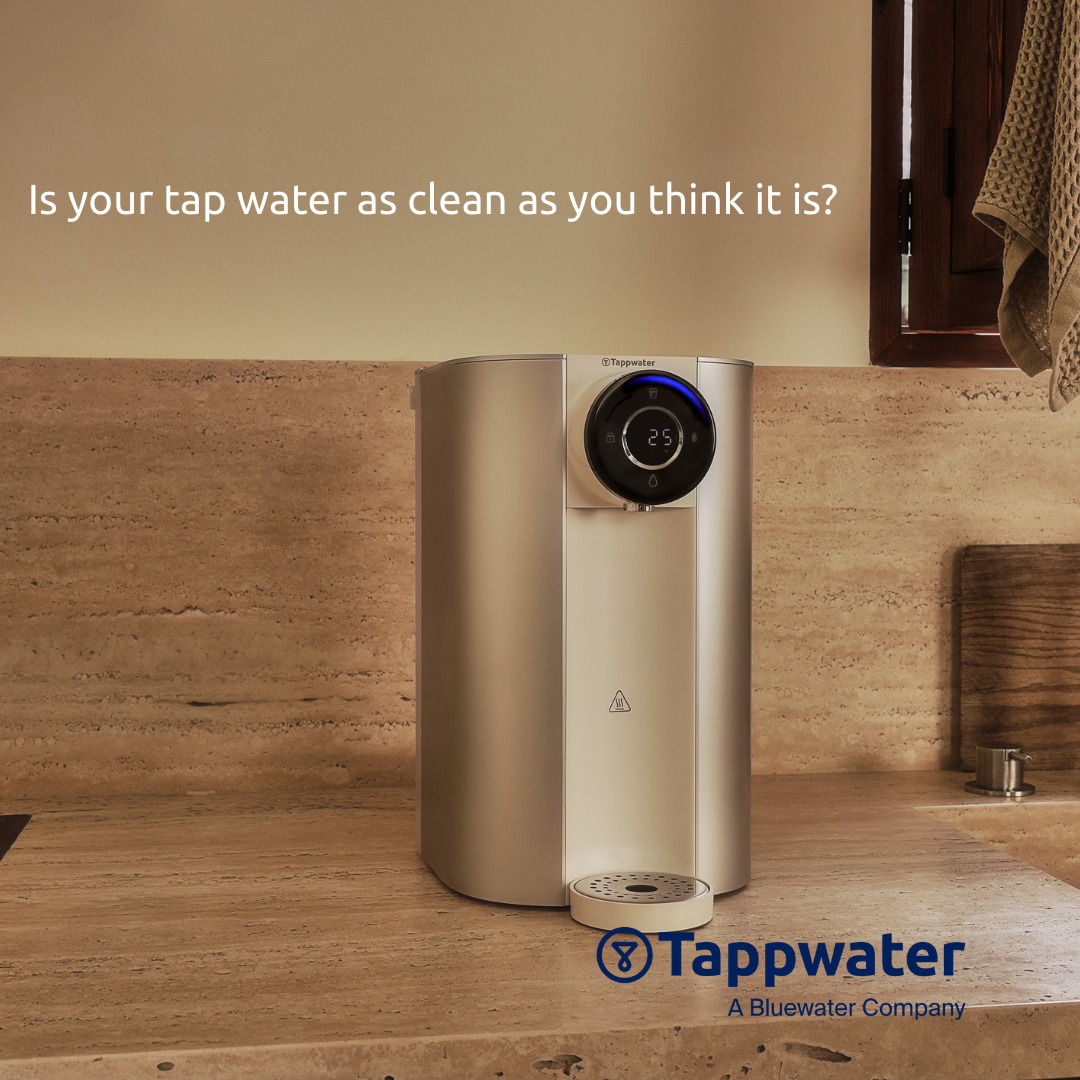
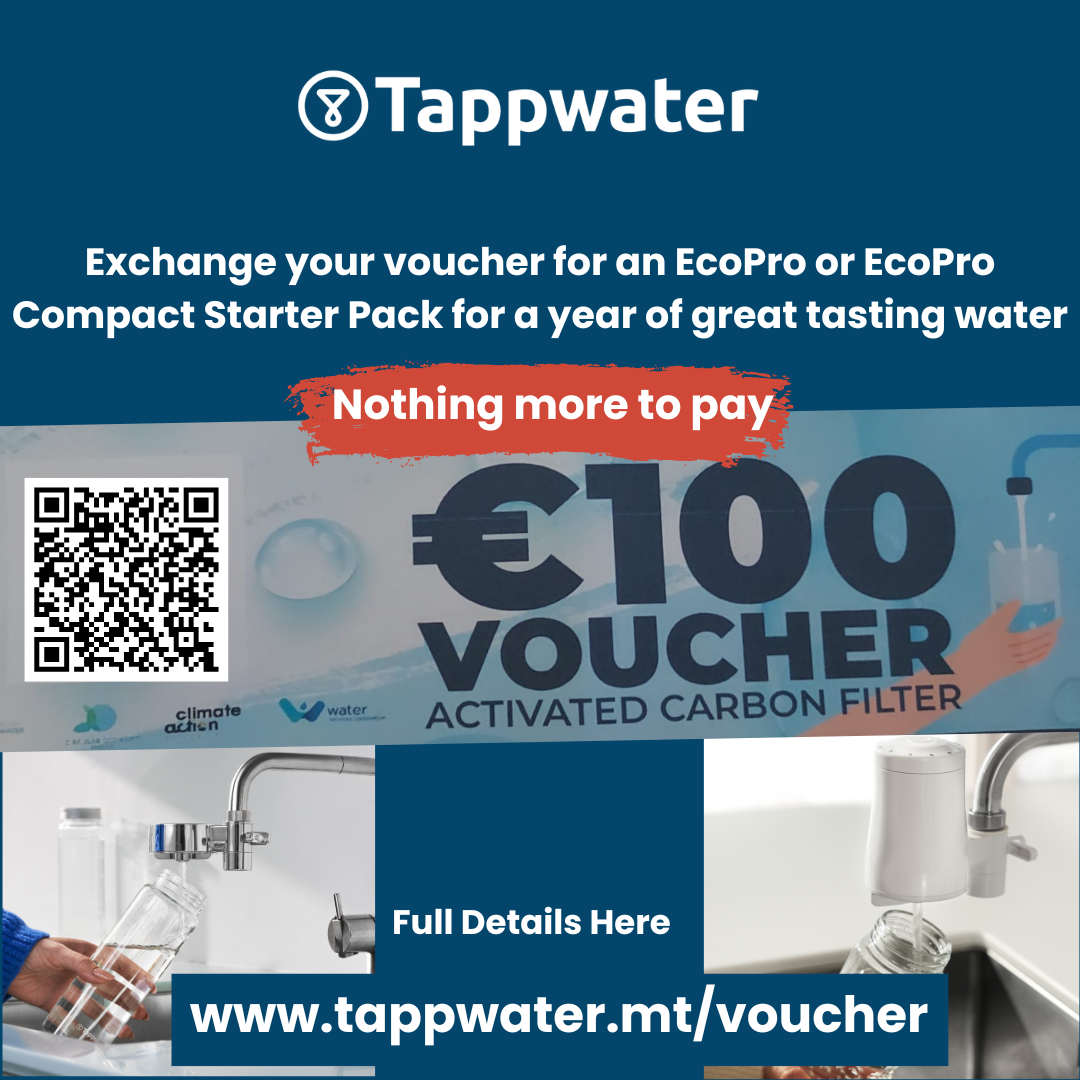
![[WATCH] Malta's Tap Water Challenge: The Tappwater Solution. A Look at the Science, the Tests, and the Deliciously Clean Results.](http://tappwater.mt/cdn/shop/articles/Why_We_lab_tested_maltas_water_Sqaure.png?v=1756738451&width=1080)
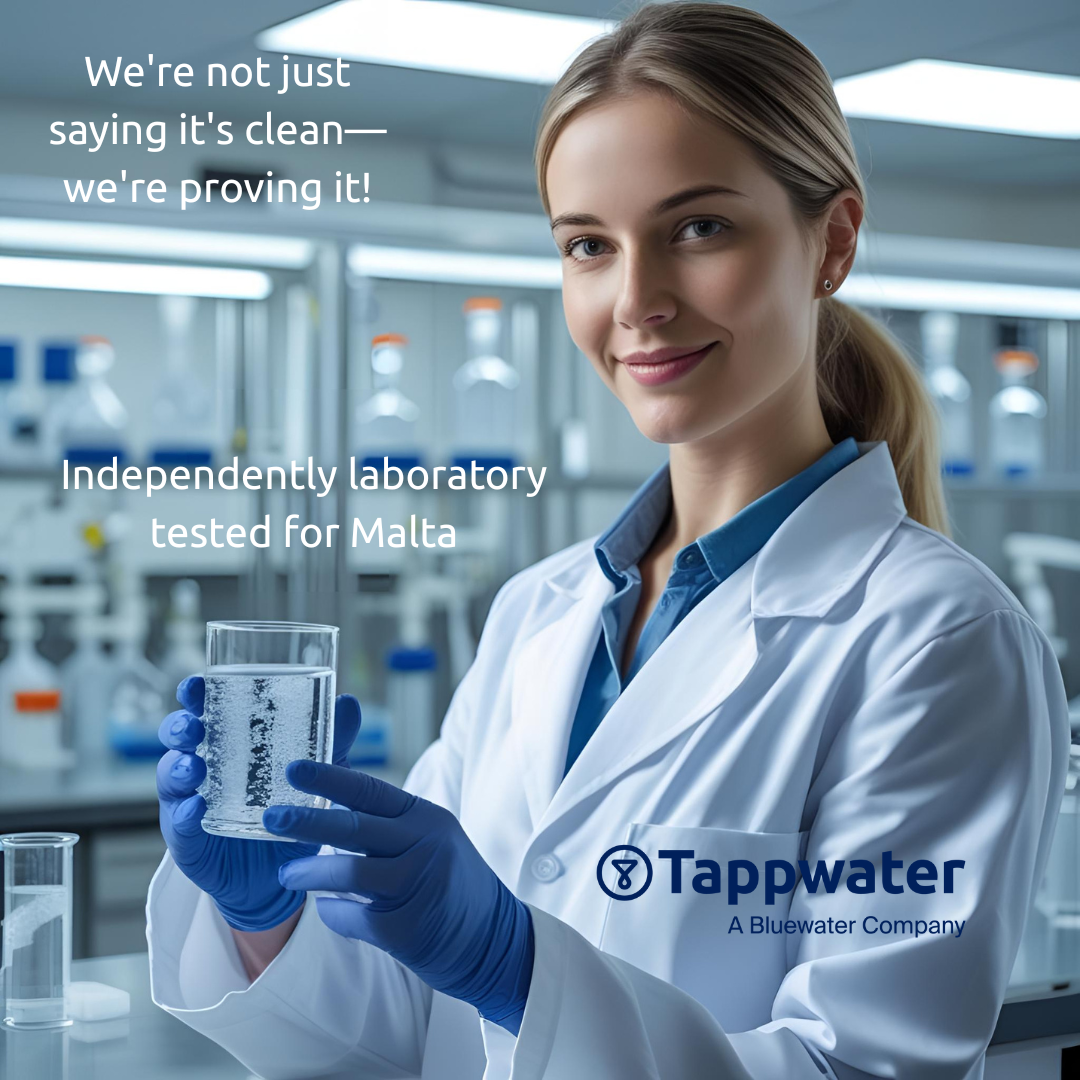
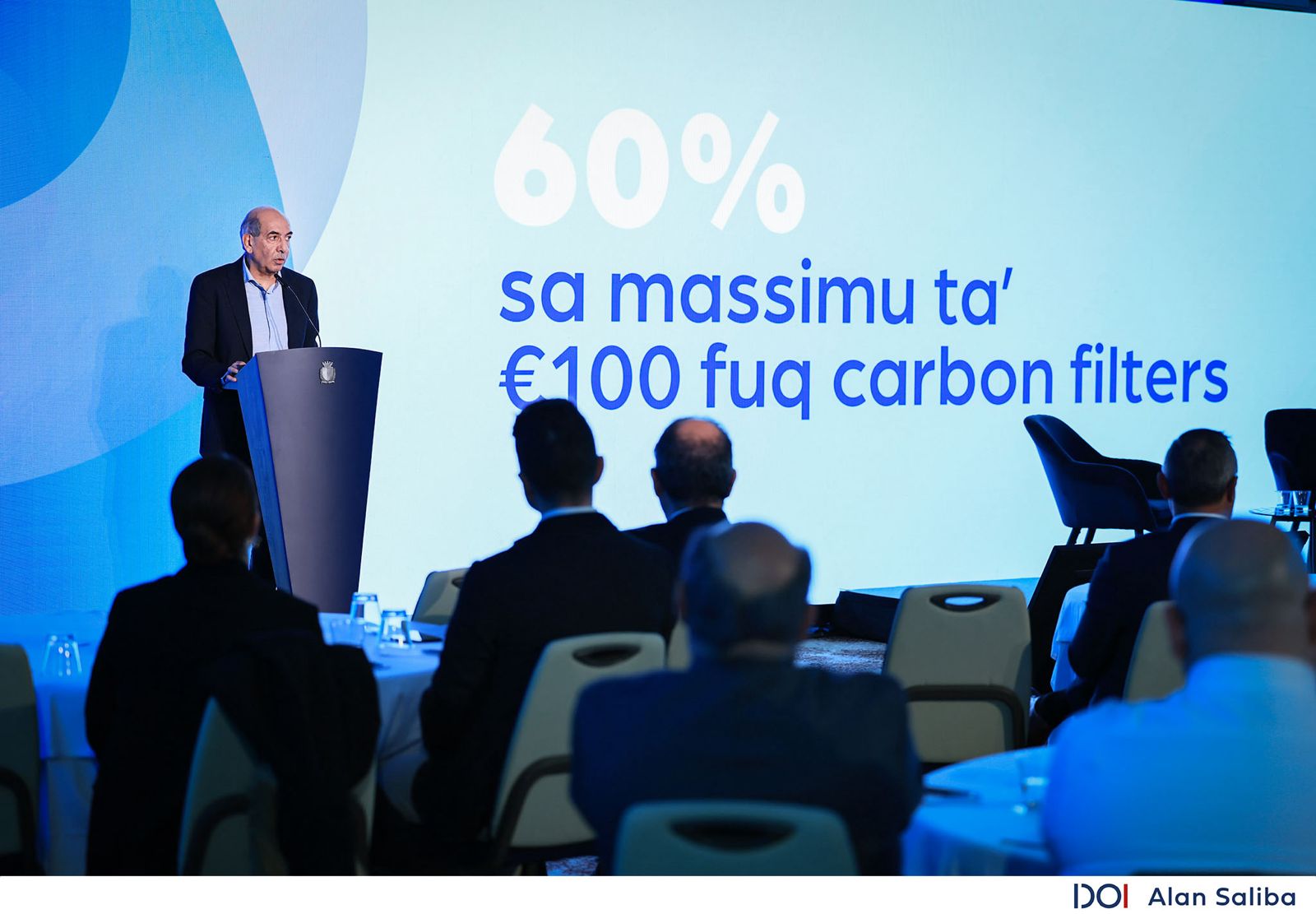
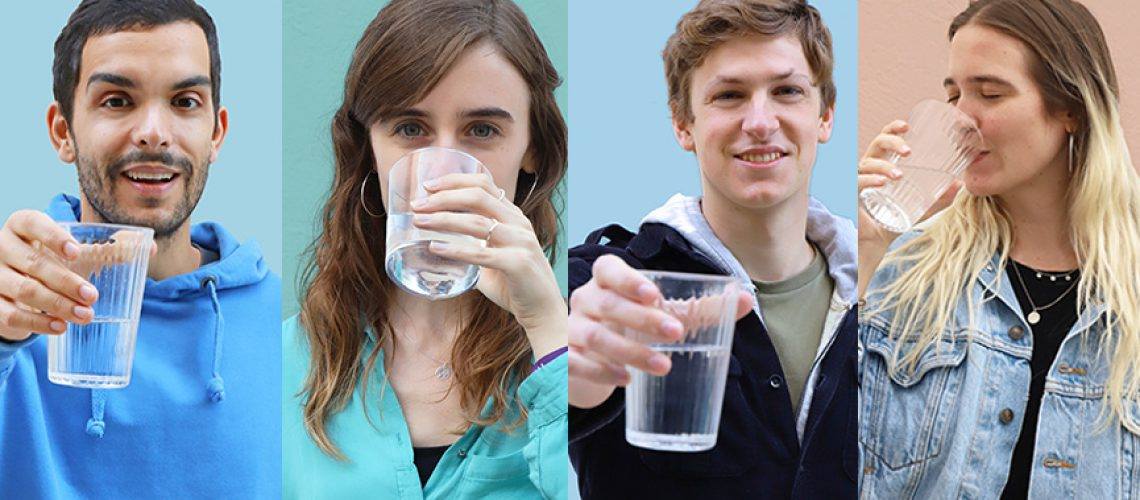
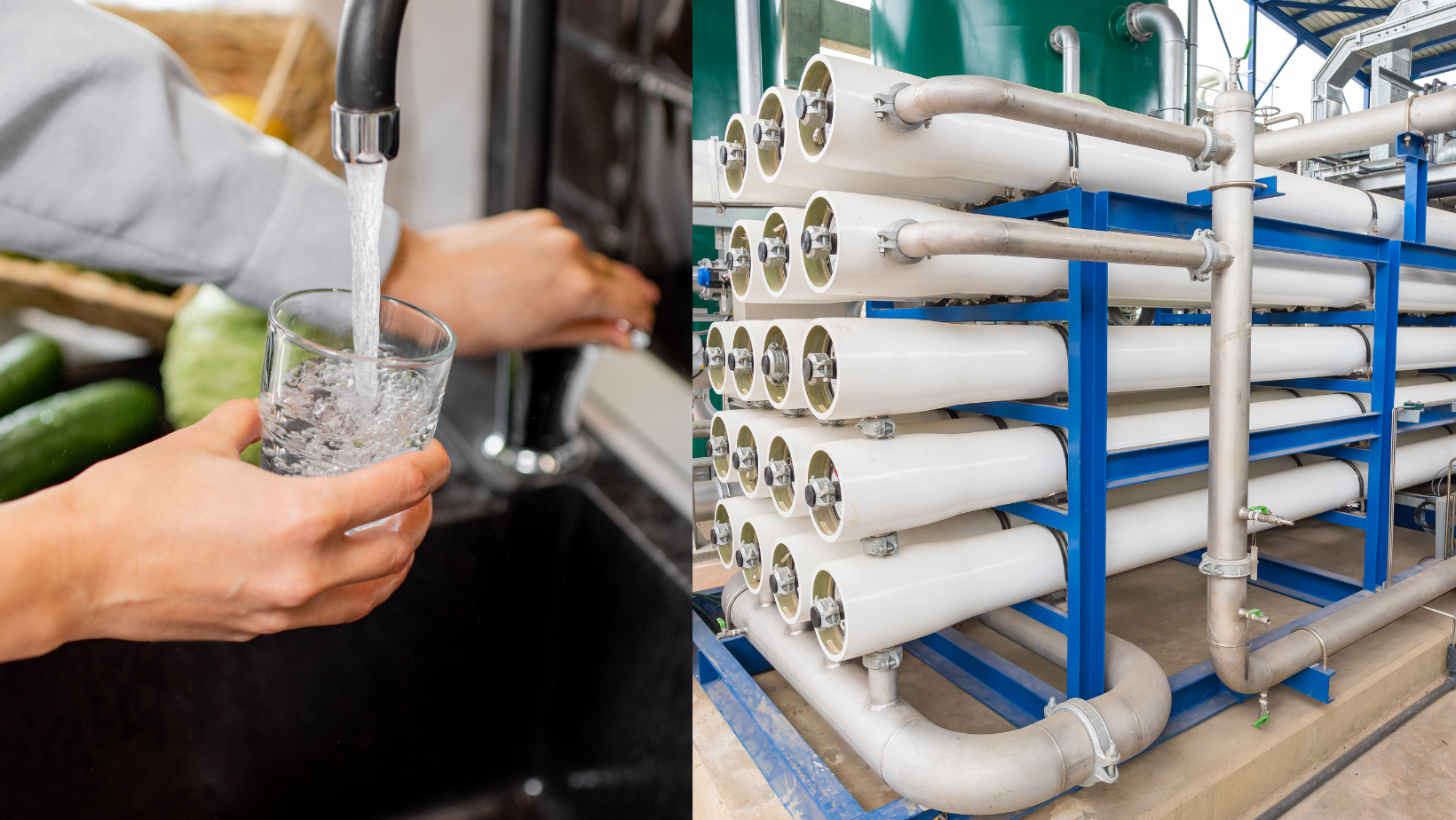
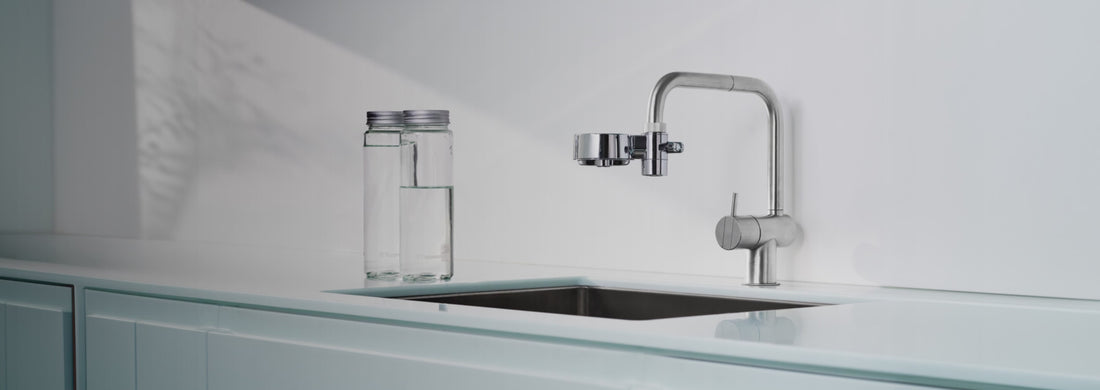
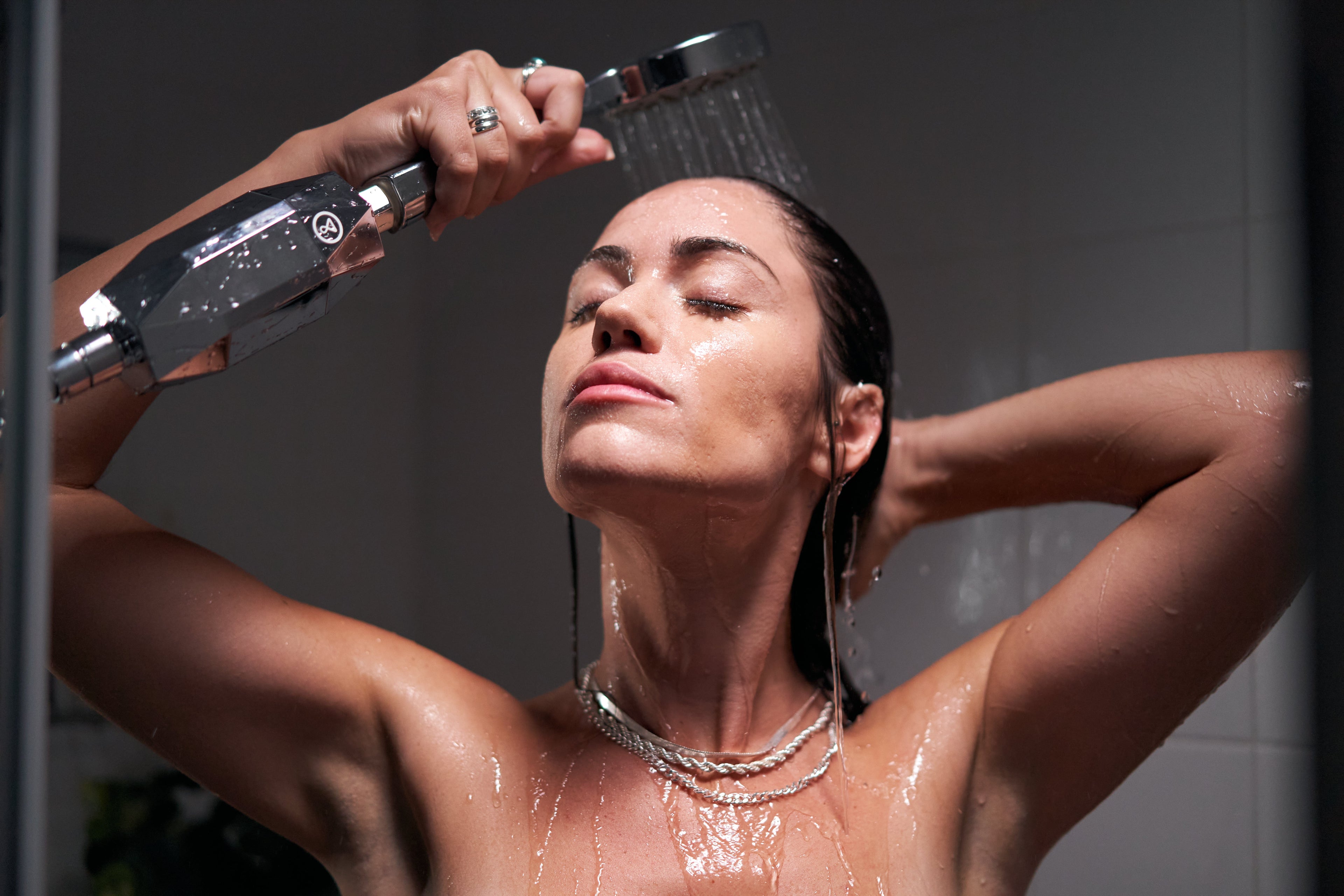
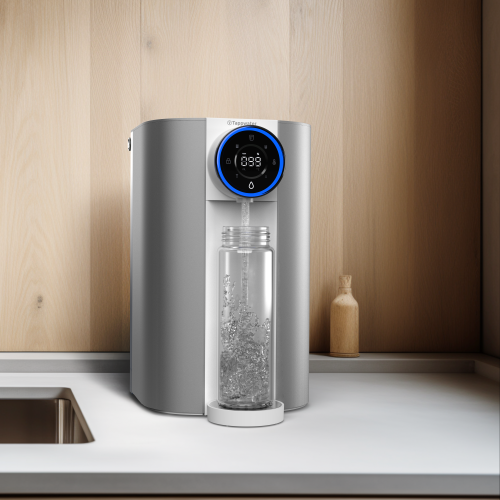
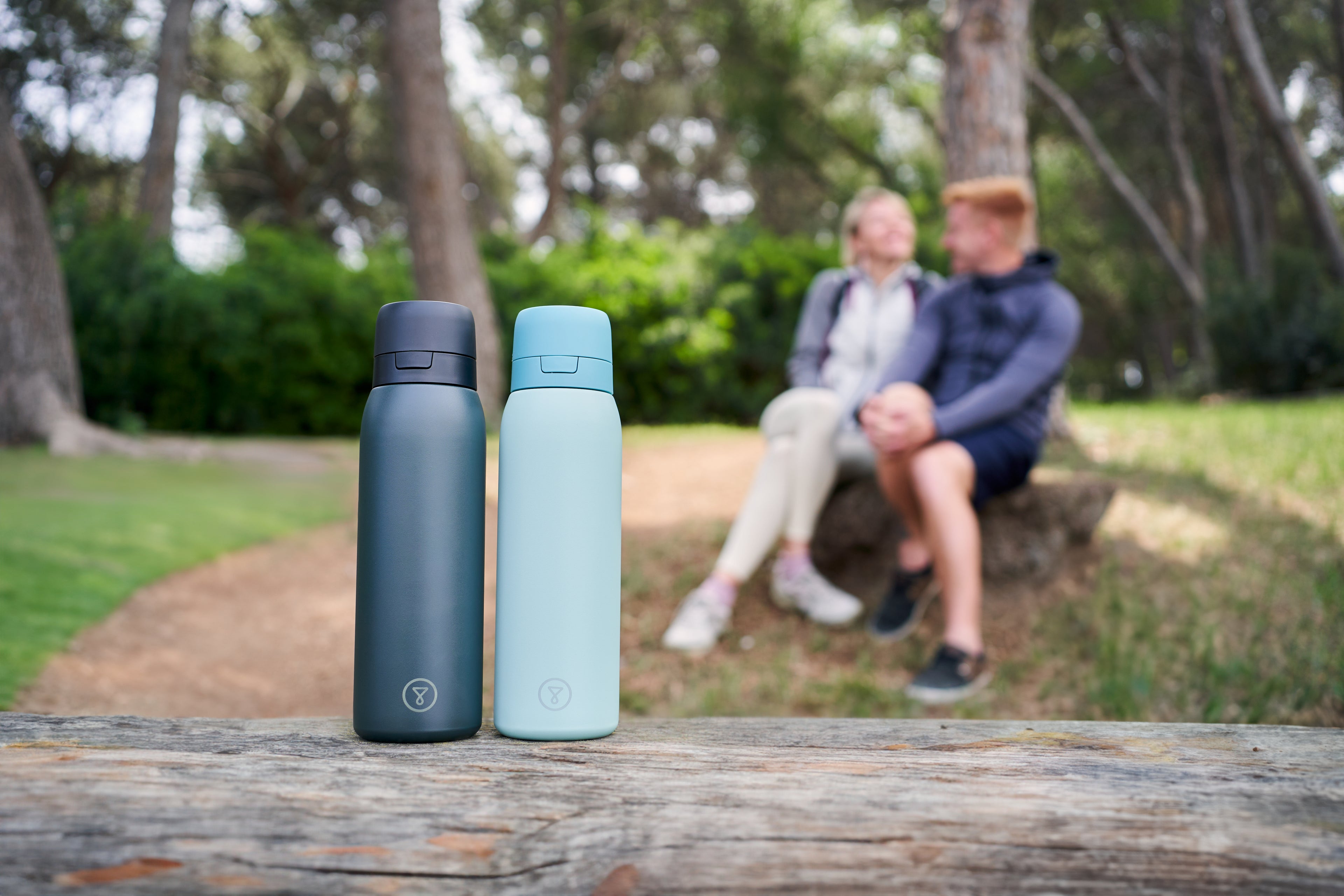
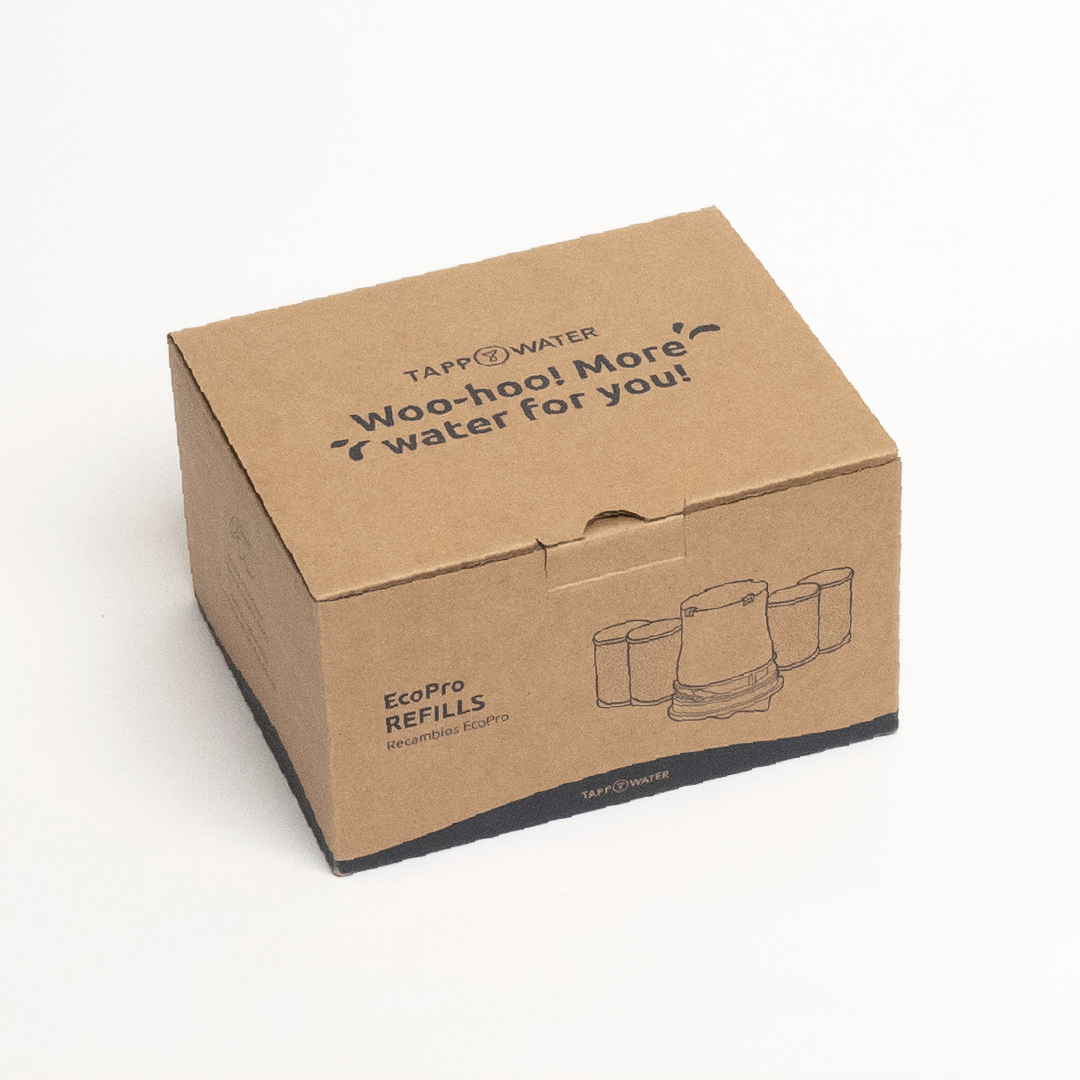
2 comments
Thanks for your comment our water filters are available for purchase, but there is a 60% grant available for home owners.
Hi good afternoon..
How can I get free water filters for the Tap please..??